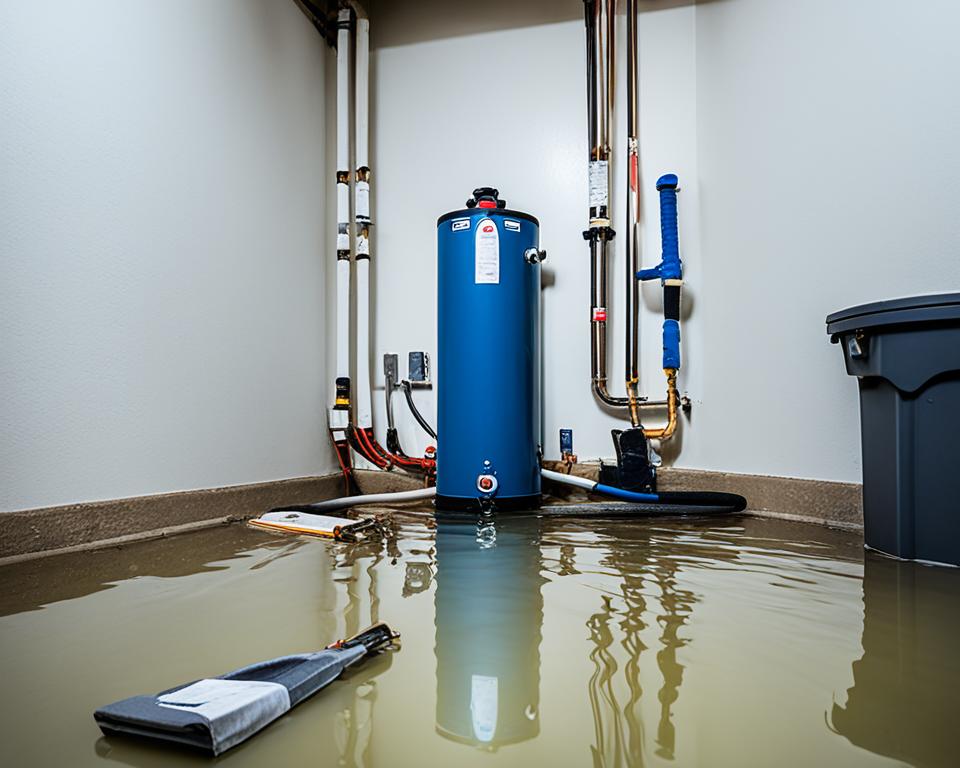Did you know that timing the real estate market can potentially save you thousands of dollars? It’s true! Understanding when is the right time to buy a house can make a significant difference in your financial journey. With fluctuating market conditions and various factors at play, it’s crucial to make an informed decision that aligns with your goals.
In this article, we’ll delve into the current housing market dynamics, evaluate economic trends, and analyze the impact of interest rate fluctuations. We’ll also explore the influence of inventory levels and buyer competition. Assessing your financial readiness and preparing for unexpected costs that come with homeownership will be key to making a successful purchase.
So, buckle up and get ready to dive into the world of real estate as we guide you through the process of determining whether now is the right time to buy a house.
Key Takeaways:
- Evaluating the current housing market dynamics is crucial in determining the right time to buy a house.
- Understanding economic trends and interest rate fluctuations can impact the affordability of your future home.
- Consider factors such as inventory levels and buyer competition to gauge your bargaining power as a potential buyer.
- Assess your financial readiness by evaluating your budget, credit score, and debt-to-income ratio.
- Be prepared for the unexpected costs of homeownership, such as property purchase expenses and ongoing maintenance.
Understanding the Current Housing Market Dynamics
In order to make an informed decision on whether now is the right time to buy a house, it’s crucial to have a deep understanding of the current housing market dynamics. Several key factors play a significant role in shaping the real estate landscape, including economic trends, interest rate fluctuations, inventory levels, and buyer competition.
Evaluating Economic Trends and Their Impact on Housing
Economic trends have a direct impact on the housing market. Factors such as GDP growth, employment rates, and consumer confidence can influence the demand for housing and the overall affordability of properties. By closely evaluating economic indicators, you can gain valuable insights into the stability and potential growth of the real estate sector.
Interest Rate Fluctuations: What They Mean for You
Interest rates play a crucial role in determining the affordability of homes. Fluctuations in interest rates can significantly impact mortgage payments and ultimately affect your buying power. When interest rates are low, it can be an opportune time to enter the market as borrowing costs are reduced. Conversely, rising interest rates may lead to higher mortgage payments and make purchasing a home less affordable.
Inventory Levels and Buyer Competition

Inventory levels refer to the number of homes available for sale in a particular market. When inventory is low, there is less supply, which can drive up prices and create a competitive environment among buyers. On the other hand, high inventory levels can provide more choices and potentially lower prices. Understanding the current inventory levels in your desired area will help you gauge the level of buyer competition and make informed decisions when making an offer.
By analyzing these housing market dynamics, including economic trends, interest rate fluctuations, inventory levels, and buyer competition, you’ll be equipped with the knowledge to navigate the real estate landscape. In the next section, we’ll discuss how to assess your financial readiness to buy a house.
Assessing Your Financial Readiness
Before making the decision to buy a house, it’s important to assess your financial readiness. This will ensure that you are in a strong position to navigate the financial responsibilities of homeownership. By evaluating key financial factors, you can determine if you are ready to take this significant step in your life.
One of the first things you should evaluate is your budget. Take a close look at your income and expenses to determine if you can comfortably afford the costs of buying a house, including mortgage payments, property taxes, insurance, and maintenance expenses. A detailed budget will give you a clear picture of your financial situation and help you decide if you can afford the financial commitment of homeownership.
Your credit score is another crucial factor to consider. Lenders use your credit score to determine your eligibility for a mortgage loan and the interest rate you will be offered. A higher credit score can result in better loan terms and lower interest rates, making homeownership more affordable. Take the time to review your credit report, identify any errors, and work on improving your credit score if necessary.
Additionally, your debt-to-income ratio plays a significant role in determining your financial readiness. This ratio compares your monthly debt payments to your monthly income. Lenders typically prefer a debt-to-income ratio below 43%. If your ratio is higher, it may be a sign that you have too much debt and could struggle to make mortgage payments. Prioritize paying down your debts and reducing your debt-to-income ratio before considering a home purchase.
A stable income and adequate savings are essential for buying a house. Lenders want to see that you have a reliable source of income to cover your mortgage payments and other expenses. They also typically require a certain percentage of the home’s purchase price as a down payment. Saving for a down payment and having enough funds to cover closing costs and unexpected expenses is crucial for a successful real estate purchase.
No matter how tempting it may be to rush into homeownership, taking the time to assess your financial readiness will ensure that you are well-prepared for the financial responsibilities and challenges that come with buying a house.

| Financial Factors to Consider | Action Steps |
|---|---|
| Budget Evaluation | Review income and expenses to determine affordability. |
| Credit Score Assessment | Check your credit report and work on improving your score if necessary. |
| Debt-to-Income Ratio Analysis | Reduce debt and aim for a lower debt-to-income ratio. |
| Stable Income and Savings | Ensure a reliable income source and save for a down payment and closing costs. |
Unexpected Costs: Preparing for the Extra Expenses of Homeownership
When it comes to homeownership, there’s more to consider than just the upfront cost of purchasing a property. Unexpected expenses can quickly accumulate, potentially putting stress on your finances if you’re not prepared. In this section, we’ll explore the hidden prices of property purchase and maintenance. We’ll also discuss the importance of budgeting for taxes, insurance, and emergency repairs, ensuring you’re equipped to handle unexpected costs throughout your homeownership journey.
The Hidden Prices of Property Purchase and Maintenance
Buying a property involves various additional costs beyond the purchase price. These expenses, often overlooked by first-time buyers, can come as an unwelcome surprise. Some of the hidden costs associated with property purchase include:
- Appraisal fees
- Closing costs
- Legal fees
- Inspection fees
These costs can quickly add up, impacting your overall budget and affordability. It’s crucial to factor them into your financial planning to avoid unexpected financial strain.

Budgeting for Taxes, Insurance, and Emergency Repairs
Aside from the hidden prices associated with property purchase, homeowners must also account for ongoing expenses. Budgeting for taxes, insurance, and emergency repairs is essential to maintain a financially secure homeownership. Let’s take a closer look at each of these aspects:
- Taxes: Property taxes are an unavoidable expense for homeowners. The amount you’ll owe varies depending on factors such as the value of your property and local tax rates. It’s crucial to research and budget for property taxes to avoid any surprises when tax season rolls around.
- Insurance: Homeowners insurance is vital to protect your investment. It covers damages and losses caused by unforeseen events like fire, theft, or natural disasters. When budgeting for insurance, consider the coverage you need and shop around for competitive rates.
- Emergency Repairs: Homeownership often brings unexpected repairs and maintenance. Whether it’s a leaky roof, a malfunctioning HVAC system, or plumbing issues, emergency repairs can quickly create financial strain. Setting aside funds specifically for these unforeseen expenses will help you handle them without disrupting your budget.
By accounting for these ongoing expenses and creating a comprehensive budget, you’ll be better equipped to manage the unexpected costs of homeownership and enjoy the benefits of owning a home without financial stress.
| Property Purchase Costs | Maintenance Expenses | Taxes, Insurance, and Emergency Repairs |
|---|---|---|
| Appraisal fees | Regular upkeep and repairs | Property taxes |
| Closing costs | Landscaping and yard maintenance | Homeowners insurance |
| Legal fees | Replacement of appliances and systems | Emergency repairs |
| Inspection fees | Renovations and improvements |
Should You Buy a House Now? Timing Your Real Estate Investment
When it comes to buying a house, timing is crucial. You want to make sure you’re making a sound investment that aligns with market predictions and housing demand. Additionally, considering seasonal considerations in the property market can provide valuable insights into the best time to make your purchase.
Analyzing Market Predictions and Housing Demand
Market predictions can offer valuable insights into the future performance of the real estate market. By examining factors such as economic indicators, interest rate trends, and demographic shifts, experts can make predictions about the demand for housing and potential fluctuations in prices. Understanding these predictions can help you make an informed decision about buying a house.
Furthermore, evaluating housing demand in your target area is essential. Are there signs of increased demand? Are properties selling quickly? Understanding the current housing market dynamics in terms of demand can provide you with a better understanding of whether it’s a good time to buy a house or if you should wait for more favorable conditions.
Seasonal Considerations in the Property Market
Seasonal variations can significantly impact the real estate market and influence the timing of your real estate investment. For example, spring and summer are typically considered the peak seasons for buying and selling houses. The warmer weather and longer daylight hours often attract more buyers, leading to increased competition and potentially higher prices.
Conversely, the winter months may present opportunities for buyers. Overall housing demand tends to be lower during this time, which can result in less competition and potentially lower prices. However, it’s essential to consider regional variations and local market conditions as they may differ from national trends.
By considering seasonal fluctuations, you can strategically time your real estate investment to maximize your chances of finding a favorable deal that meets your needs and budget.
Conclusion
After considering all the factors and analyzing the current market conditions, it’s time to weigh your options and make a decision. Buying a house is a significant financial commitment, and timing can play a crucial role in ensuring a successful investment.
So, should you buy a house now? Ultimately, the answer depends on your specific circumstances, goals, and risk tolerance. While the current conditions may present opportunities, it’s essential to carefully consider the economic trends, interest rate fluctuations, and inventory levels that can impact the affordability and availability of properties.
Remember that timing the market perfectly is nearly impossible, and trying to do so can lead to missed opportunities. Instead, focus on your financial readiness, evaluate your budget, and ensure that you have stable income and savings for down payments and closing costs.
In conclusion, buying a house is a significant decision that requires careful consideration. Consider consulting with real estate professionals, such as mortgage lenders and real estate agents, who can provide valuable guidance tailored to your specific needs. By being informed, financially prepared, and weighing the pros and cons, you can make a well-informed decision that aligns with your goals and ultimately leads to a rewarding home-buying journey.
FAQ
Is now the right time to buy a house?
The current market conditions and various factors can influence the timing of your real estate investment. It’s important to consider economic trends, interest rate fluctuations, inventory levels, and buyer competition to make an informed decision.
How can I understand the current housing market dynamics?
Evaluating economic trends and their impact on housing, as well as considering interest rate fluctuations, inventory levels, and buyer competition, can help you gain insight into the current housing market dynamics.
How do interest rate fluctuations affect my decision to buy a house?
Interest rate fluctuations can have a significant impact on your affordability and mortgage payments. It’s necessary to assess how interest rate movements can influence your ability to purchase a house and consider the long-term implications of these fluctuations.
What factors should I consider to assess my financial readiness to buy a house?
To determine if you’re financially ready to buy a house, it’s crucial to evaluate your budget, credit score, debt-to-income ratio, stable income, and savings for down payments and closing costs.
Are there any unexpected costs associated with homeownership?
Yes, there are hidden expenses that come with homeownership. These include appraisal fees, closing costs, ongoing maintenance expenses, property taxes, insurance, and emergency repairs. It’s important to budget for these unexpected costs to ensure you’re financially prepared.
How can I time my real estate investment?
Analyzing market predictions, housing demand, and considering seasonal considerations in the property market can help you determine if it’s the right time for you to buy a house.
Source Links
- https://news.sky.com/story/russia-ukraine-war-live-updates-putin-election-navy-sky-news-blog-latest-12541713
- https://www.pressandjournal.co.uk/fp/news/crime-courts/6399552/paul-milne-union-street/
- https://www.dailymail.co.uk/news/article-13183901/White-House-says-Biden-did-NOT-apologize-calling-Laken-Rileys-suspected-murdered-illegal-24-hours-said-regretted-using-term.html

